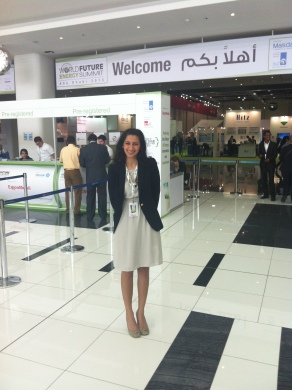“Implications of the Global Energy Revolution: The Future Is Not What It Used To Be”
By Daryna Tabatska
On March 11, 2014, AJC Global Jewish Advocacy hosted the Global Energy Policy Forum “The Implications of the Global Energy Revolution: The Future Is Not What It Used To Be” at the Kimmel Center of NYU. The panel included representatives from Canada, the United States and Mexico. Special guests gave a detailed insight into how the energy sector is developing in the European Union, especially, in Germany.
With the US natural gas boom, Canada is posed to become one of the largest energy suppliers. Consequently, Canada is currently looking for ways to access new markets in Asia and Europe. The country is developing key technologies to extract its natural resources, working on its fiscal environment to make its energy market investment friendly, and also working intensively on environmental regulations. Mexico is facing the time of reforms that include such provisions as transforming energy monopolies into state enterprises, creating a new governmental body for environmental protection and developing access to the international energy market. Interestingly, the new environmental body will monitor the actions not only of energy state enterprises, but also of industrial companies.
Dr. Cheryl Martin, Acting Director of ARPA-E of The US Department of Energy, gave an insight on what new technologies had been developed, and how they could be used in housing, building, renewable sources and transportation sector; however, to give a positive impact on environment, people have to actually use these new technologies. So the question remains, how can consumer behavior be changed to make our daily actions eco-friendly?
Canada, the United States and Mexico are focusing more attention on conventional energy resources in comparison to the representatives of Germany and the Netherlands that showed how their countries are working on renewables. German energy policy includes provisions for what percentage of power has to be produced by using alternative energy sources, but Germany still needs to manage a way to deliver renewable energy from places where it is produced (the North of Germany) to the industrial-loaded South. Additionally, special attention is focused on the so-called new market design that should bring together conventional and unconventional energy sources and enable the energy market to react on price signals. Consequently, this model could ensure stability, if renewables don’t produce enough energy, for example, if the sun is still shining. However, Germany is not the only country in the EU that pays a big attention to renewables and environmental protection. The Netherlands also focuses mostly on solar energy and electric cars and Denmark is going to produce all its energy by renewables in 2020.
We can see that the European Union is intensively working on the alternative energy sources, while the United States, Canada and Mexico are focusing on conventional energy. Yet, all of these countries seem united (at least in word) in creating policies to protect the environment.

 This past week, Abu Dhabi hosted the 6th annual World Future Energy Summit in conjunction with Abu Dhabi Sustainability Week and along side the International Water Summit 2013, where high profile delegates included French president Francois Hollande and HH Princess Rania of Jordan. The buzz on the beat was international cooperation, energy efficiency, and sustainability.
This past week, Abu Dhabi hosted the 6th annual World Future Energy Summit in conjunction with Abu Dhabi Sustainability Week and along side the International Water Summit 2013, where high profile delegates included French president Francois Hollande and HH Princess Rania of Jordan. The buzz on the beat was international cooperation, energy efficiency, and sustainability.